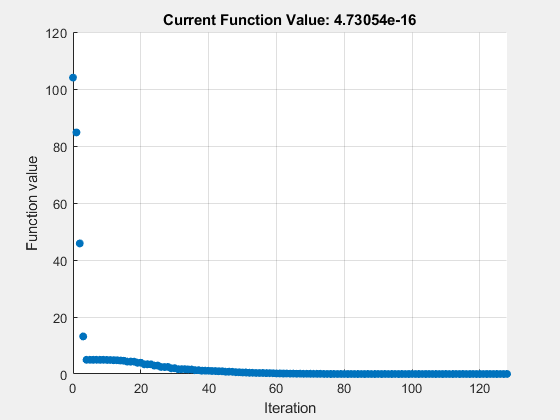optimset
Create or modify optimization options structure
Syntax
Description
Create or modify options structure for MATLAB® solvers.
Note
optimoptions is recommended instead of
optimset for all solvers except fzero,
fminbnd, fminsearch, and
lsqnonneg.
options = optimset(Name,Value)options with specified parameters set using one or more
name-value pair arguments.
optimset (with no input or output arguments) displays a
complete list of parameters with their valid values.
options = optimsetoptions where all
parameters are set to [].
options = optimset(oldopts,Name,Value)oldopts and modifies the specified parameters
using one or more name-value pair arguments.
Examples
Input Arguments
Output Arguments
Limitations
optimsetsets options for the four MATLAB optimization solvers:fminbnd,fminsearch,fzero, andlsqnonneg. To set options for Optimization Toolbox™ or Global Optimization Toolbox solvers, the recommended function isoptimoptions.optimsetcannot set options for some Optimization Toolbox solvers, such asintlinprog. Useoptimoptionsinstead.optimsetcannot set most options for Global Optimization Toolbox solvers. Useoptimoptionsinstead.
Extended Capabilities
Version History
Introduced before R2006a

